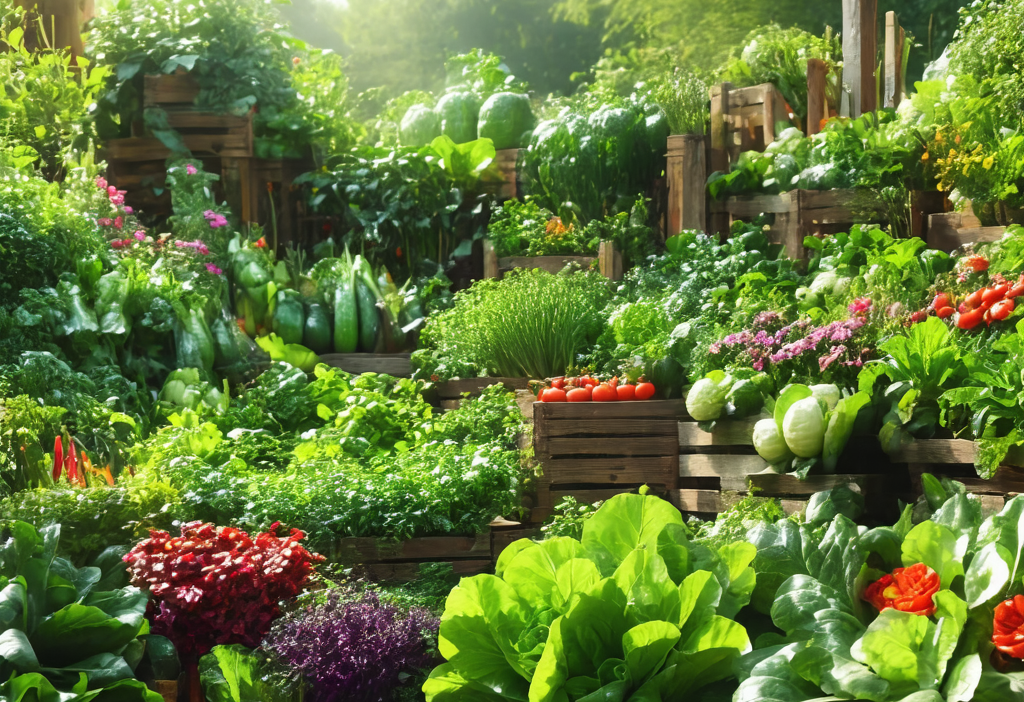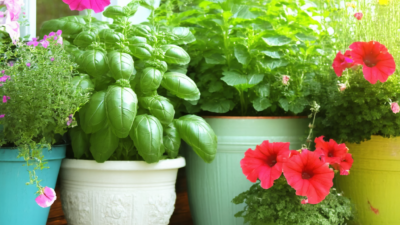Mastering Organic Gardening: A Guide to Sustainable Practices in 2025
Gardening has always been more than just a hobby—it’s a way of life. In 2025, with the world increasingly focused on sustainability and health, organic gardening is more popular than ever. Whether you’re a seasoned gardener or a novice, this guide will walk you through the essential techniques and tools to help you grow your own food in an eco-friendly way.
Introduction to Organic Gardening
Organic gardening is about more than just avoiding synthetic chemicals. It’s a holistic approach that focuses on building healthy soil, promoting biodiversity, and creating a self-sustaining ecosystem. In 2025, gardeners are increasingly adopting organic methods to reduce their environmental footprint while enjoying fresh, nutritious produce.
One of the key principles of organic gardening is the importance of composting. By recycling kitchen scraps and yard waste, you can create nutrient-rich soil that supports plant growth without synthetic fertilizers. Composting not only benefits your garden but also reduces landfill waste, making it a win-win for both you and the planet.
The Benefits of Growing Your Own Food
Growing your own food offers numerous benefits beyond just having fresh produce on hand. For one, it allows you to control what goes into your food, ensuring that your family eats chemical-free, nutrient-dense meals. Additionally, gardening can be a therapeutic activity that connects you with nature and reduces stress.
Here are some benefits of growing your own food:
- Pesticide-free produce
- Improved physical health through exercise
- Enhanced mental well-being
- Savings on grocery bills
- Support for local ecosystems
Essential Tools for the Organic Garden
To start your organic garden, you’ll need a few essential tools. These tools will help you maintain healthy soil and plants throughout the growing season.
Tools to consider:
- Garden fork or tiller for preparing soil
- Compost bin for creating nutrient-rich soil
- Watering can or hose with a spray nozzle
- Gloves and kneeling pad for comfort
- Pruning shears for maintaining plants
In 2025, many gardeners are also turning to smart tools like moisture sensors and automated watering systems. These technologies help conserve water while ensuring your plants get the right amount of hydration.
Sustainable Practices Every Gardener Should Know
Sustainability is at the heart of organic gardening. By adopting sustainable practices, you can protect the environment while growing delicious food. Here are some sustainable practices to implement in your garden:
- Companion Planting: Grow plants together that benefit each other. For example, planting marigolds alongside vegetables can deter pests naturally.
- Crop Rotation: Rotate your crops each season to prevent soil depletion and reduce the risk of disease.
- Natural Pest Control: Use organic methods like introducing beneficial insects or using neem oil to keep pests in check.
- Water Conservation: Implement drip irrigation or use rain barrels to collect water for your garden.
Even experienced gardeners can make mistakes. Here are some common pitfalls to avoid in your organic garden:
- Overwatering: Plants need water, but too much can lead to root rot.
- Ignoring Soil Health: Without proper soil preparation, your plants won’t thrive. Test your soil and add amendments as needed.
- Planting Too Closely: overcrowding can lead to disease and poor growth. Follow the recommended spacing guidelines for each plant.
Organic gardening is a rewarding way to connect with nature, grow your own food, and contribute to a healthier planet. By following these tips and using sustainable practices, you can create a thriving garden that benefits both you and the environment.
If you’re ready to start your organic gardening journey, begin by preparing your soil and selecting plants that suit your climate. Remember, patience is key—gardening is a process, and with time and care, your efforts will bear delicious, healthy rewards.





